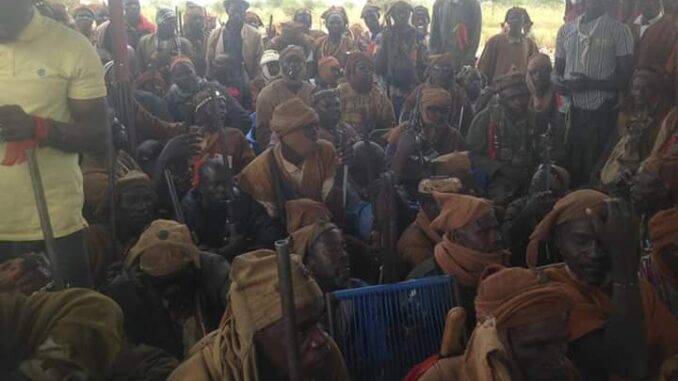
A new peace agreement was signed on Sunday, February 7, in the circle of Bankass, in the center of the country. It concerns the Dogon, Dafing and Peulh communities in seven communes. It is the fourth peace agreement signed in the exodus part of this region of Mali since June 2020, thanks among others, to the mediation of the NGO Centre for Humanitarian Dialogue.
The center of Mali has already known truces that have sometimes proved fragile, but this time, all parties assure it, peace has returned.
It was with great pomp that the signatory communities met in the commune of Diallassagou. Daouda Togo, leader of the Dogon youth, does not hide his emotion.
“We are very happy, very happy. Everyone was there; we could feel the tears in our cheeks; words fail me. Everyone was looking for peace. Everyone can move freely; all the groups will lay down their arms. And we are also going to help each other with development. There will be no more war between us. It will be respected because people are fed up with it. We are tired. War brings nothing.
Each community must lay down its arms. The free movement of goods, people and animals is guaranteed. The boycott of the fairs is suppressed and the displaced will be able to return to their homes. Here are the main commitments of this peace agreement, signed on Sunday in Diallassagou
According to Daouda Togo, leader of the Dogon youth of this commune and signatory of the agreement, this truce will be respected because the communities were exhausted. The conflict has caused nearly 400 deaths in the region.
To avoid new clashes, a monitoring committee for the agreement has been set up. Composed of 15 members, it can be called upon by the communities to arbitrate disputes.
The peace agreement also recommends that the Malian state support the return of displaced persons, provide humanitarian aid, basic infrastructure, and “open a dialogue with the armed groups in order to agree on a negotiated solution for the young people who have laid down their arms.
“In case of conflict, it is also important that the army does not intervene brutally,” explains Idrissa Sankaré, former deputy of Bankass. The signatories therefore ask the soldiers to approach the local authorities in order to fully understand the nature of the conflict.
